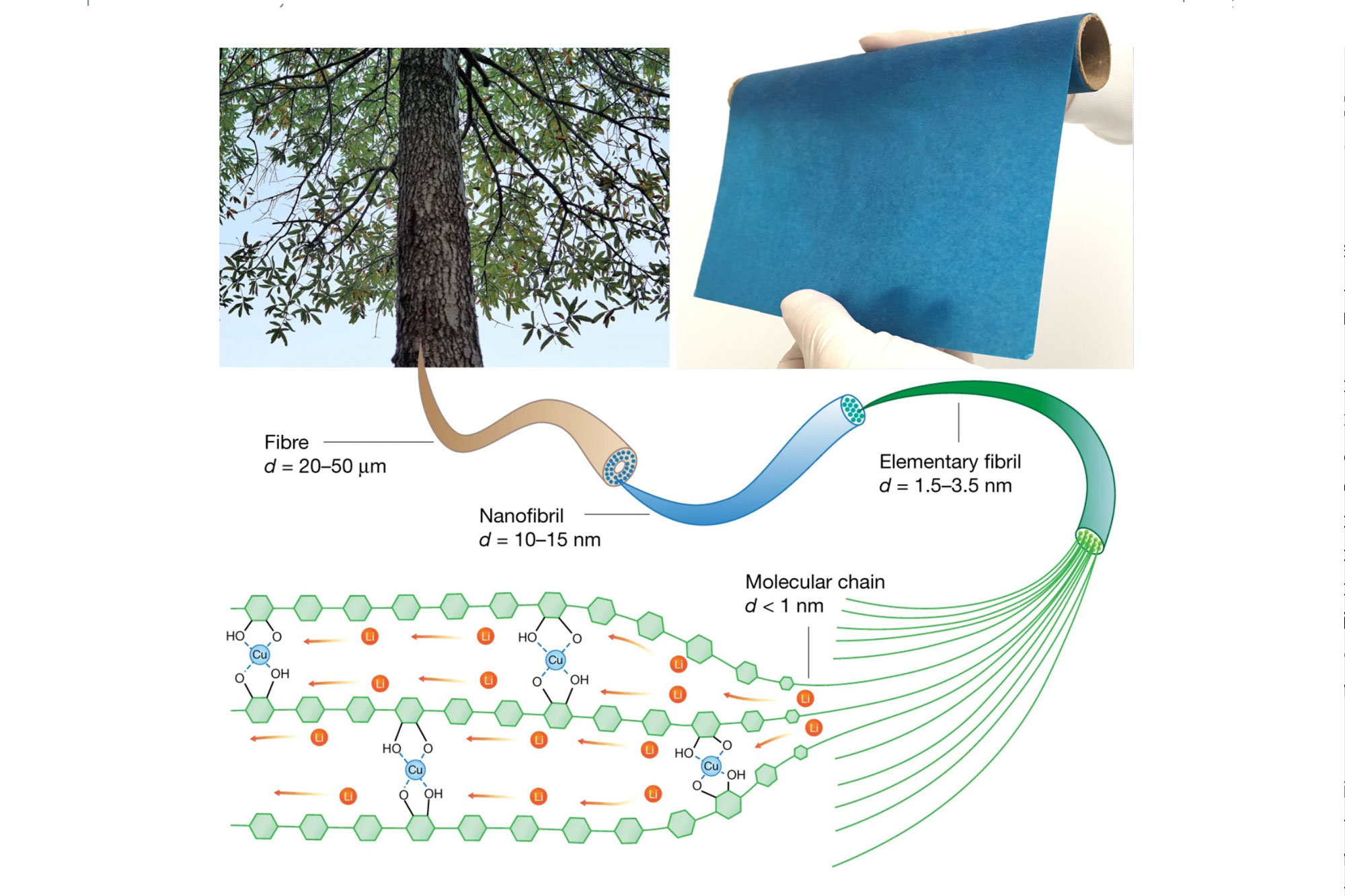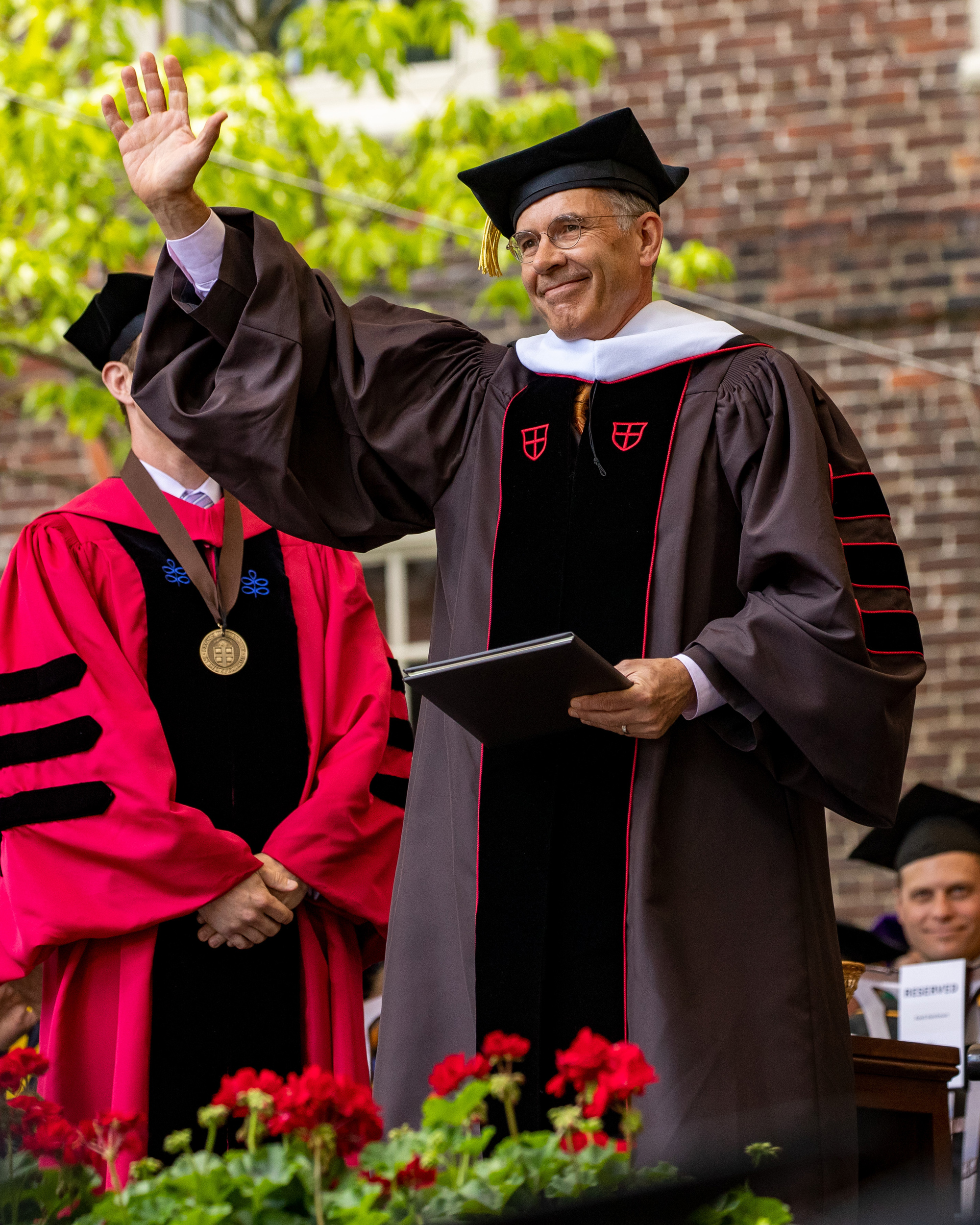2023 Issue
 In 2020, the team of Barry Lester, a professor of psychiatry, human behavior, and pediatrics, and Stephen Sheinkopf, executive director of the Thompson Center for Autism and Neurodevelopmental Disorders at the University of Missouri and an adjunct associate professor of psychiatry, human behavior, and pediatrics, received a BBII award to develop diagnostic tools based on acoustic signatures from infants’ cries that are not discernible to the human ear. Recently, a new start-up, PedialyDx, was formed to further develop and commercialize this technology. The first product will be a handheld device that uses a cloud-based algorithm to determine whether the cries of an infant with prenatal opioid exposure meet the criteria for neonatal opioid withdrawal syndrome. The company is also exploring use of the device in autism research.
In 2020, the team of Barry Lester, a professor of psychiatry, human behavior, and pediatrics, and Stephen Sheinkopf, executive director of the Thompson Center for Autism and Neurodevelopmental Disorders at the University of Missouri and an adjunct associate professor of psychiatry, human behavior, and pediatrics, received a BBII award to develop diagnostic tools based on acoustic signatures from infants’ cries that are not discernible to the human ear. Recently, a new start-up, PedialyDx, was formed to further develop and commercialize this technology. The first product will be a handheld device that uses a cloud-based algorithm to determine whether the cries of an infant with prenatal opioid exposure meet the criteria for neonatal opioid withdrawal syndrome. The company is also exploring use of the device in autism research.

The pursuit of more stable and powerful lithium-ion batteries hinges in part on the development of improved electrolytes. Current lithium-ion batteries contain electrolytes made from lithium salt dissolved in a liquid organic solvent. Liquid electrolytes can short circuit and are made with chemicals that are toxic and flammable. Solid electrolytes are made of ceramic, and while excellent at conducting ions, they are thick, rigid, and brittle.
Now there’s a better option—a thin and flexible material derived from trees for use in solid-state batteries. The new material was developed by a team of researchers co-led by the laboratory of Yue Qi, a professor in Brown’s School of Engineering, and a materials science laboratory at the University of Maryland. In a paper published in Nature in October 2021, the team describes a solid ion conductor that combines copper with cellulose nanofibrils— polymer tubes derived from wood. The paper-thin material, which has an ion conductivity of 10 to 100 times that of other polymer ion conductors, could be used as either a solid battery electrolyte or as an ion-conducting binder for the cathode of a solid-state battery. Eventually, the new material could be a step toward bringing solid-state battery technology to mass production.

Strange metals, discovered around 30 years ago, are materials related to high-temperature superconductors and share fundamental quantum attributes with black holes. High-temperature superconductors conduct electricity with zero resistance at temperatures far above normal superconductors. The two fundamental classes of subatomic particles are fermions and bosons, which usually behave very differently. However, a research team co-led by Brown physics professor James Valles has found strange metal behavior in a material in which electrical charge is carried not by electrons, which are fermions, but by more wavelike entities called Cooper pairs. Although they consist of two electrons, Cooper pairs are bosons. Using a material called yttrium barium copper oxide, Valles and his team discovered strange metal behavior in a Cooper-pair metallic state—the first time strange metal behavior had been seen in a bosonic system. The findings, reported in Nature in January 2022, could help scientists understand strange metal behavior, such as high-temperature superconductivity, and potentially provide fundamental insights into the quantum world.
MARCIA CHATELAIN, MA’03, PHD’08 is a professor of history and African American studies at George- town University, a scholar of African American life and culture, a speaker about pervasive social issues and activist movements, and an acclaimed author. Her book Franchise: The Golden Arches in Black America received the Pulitzer Prize for history in 2021. At Brown, she received her master’s and doctoral degrees in American Civilization.
 “My time at Brown University in the PhD program in American Civilization (now American Studies) revealed to me that disciplinary boundaries were made to be challenged and some- times broken. Having received training and mentorship from historians, sociologists, and literary critics, and having access to lectures by cognitive scientists, and having been able to build friendships with emerging physicians and engineers, Brown taught me that research is always collaborative. My explorations into the various dynamics of African American history are informed by an array of thinkers, and I am ever grateful to Brown for giving me the skills and confidence to pursue my curiosities and to seek different ways of looking at the world.”
“My time at Brown University in the PhD program in American Civilization (now American Studies) revealed to me that disciplinary boundaries were made to be challenged and some- times broken. Having received training and mentorship from historians, sociologists, and literary critics, and having access to lectures by cognitive scientists, and having been able to build friendships with emerging physicians and engineers, Brown taught me that research is always collaborative. My explorations into the various dynamics of African American history are informed by an array of thinkers, and I am ever grateful to Brown for giving me the skills and confidence to pursue my curiosities and to seek different ways of looking at the world.”
GUIDO IMBENS MA’89, PHD’91, LHD’22 HON. is an economics professor at Stanford University. He was awarded Brown’s Horace Mann Medal in 2017 for his contributions to the economics field, shared the 2021 Nobel Prize in Economic Sciences, and received an honorary degree from Brown in 2022.
 “Coming to Brown University opened up a whole new world for me. It was the first time I came to the United States, and the friendliness of the [economics] department and the University community made me feel very welcome. It was not just the rigor of the academic program that prepared me well for my subsequent work, it was also the humanity of the department. I vividly remember getting invited by one of the profes- sors for a family Thanksgiving dinner. As a faculty, we now often invite graduate students to our house to make them feel welcome and seen.”
“Coming to Brown University opened up a whole new world for me. It was the first time I came to the United States, and the friendliness of the [economics] department and the University community made me feel very welcome. It was not just the rigor of the academic program that prepared me well for my subsequent work, it was also the humanity of the department. I vividly remember getting invited by one of the profes- sors for a family Thanksgiving dinner. As a faculty, we now often invite graduate students to our house to make them feel welcome and seen.”